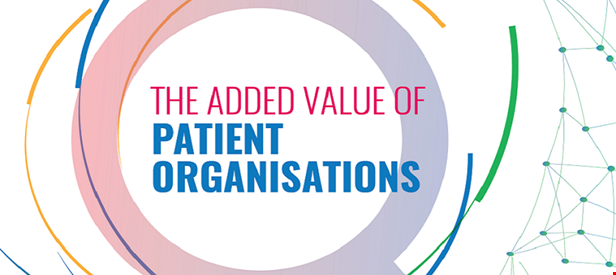Patient Organisations: the Untapped Potential of the Healthcare System
 ©EPF
©EPF
Patient organisations represent and voice the situation of a specific population that would otherwise not be represented. Yet, the scope and the role of patient organisations are still very often misunderstood. With this in mind, the European Patients’ Forum (EPF) commissioned a report to highlight the value of patient organisations as legitimate stakeholders in civil dialogue in health-related policies.
Beyond peer support: the many values of patient organisations
This significant report, released on 14 November, reveals that patient organisations have long ago overstepped their initial role as self-help organisations, where individual patients share experiences of a specific disease. If peer support remains one of the core missions of patient organisations, the report identifies three further areas where patient organisations undertake activities: policy and advocacy, capacity-building and education, and research and development.
“Patient organisations are invaluable partners in the policy process, providing input through stakeholder advisory groups, expert panels, European and/or national government public consultations or institutional meetings”, the report finds.
Building capacity for the patient community and beyond
Patient organisations also work to strengthen the organisational and governance structures of their constituencies with the aim of helping patient groups become more resilient, sustainable and effective.
However, they do not direct all of their capacity-building efforts to the patient community: indeed, it is not uncommon to see them invest in capacity-building for health professionals, policy-makers, industry and academia. In that case, the focus can be on upgrading these stakeholders’ skills in communication and evidenced-based messaging.
Patient groups also play a fundamental role in the capacity building via the media, to promote a positive depiction of patients that is stigma-free and factually accurate in popular media stories. The activities of the European Organisation of Families Affected by Mental Illness (EUFAMI) are exemplary in this regard: the organisation developed a campaign promoting an “International Media Guide for Mental Health”, with an annual award ceremony among European media outlets.
Patient organisations’ invaluable contribution to research
Patient organisations are increasingly active as research collaborators, including through the setting of research priorities and data collection; they are well-placed to provide more qualitative empirical data that enriches the political and practical narrative within the health research area through the contextual background, wider community development, and empowerment. The contribution of patient organisations to research through the medium of surveys and registers cannot be undermined. EPF member Alzheimer Europe publishes yearly reports on the state of Alzheimer’s disease policies and treatments across Europe; the most recent one being a comparative benchmarking exercise on national dementia policies and strategies.
Overcoming the many challenges
The report also looks at the challenges patient organisations meet when performing these activities. The lack of resources and funding is an ongoing problem in all areas of their work. Moreover, when they do access resources, patient organisations have to respond to questions over their alleged lack of independence, or criticisms that the professionalisation of the sector might threaten their representativeness.
Finally, the report points out a culture and tradition of tokenism when it comes to working with patient organisations.
The report concludes with some key recommendations to stakeholders, including to policy-makers and researchers, on how to make the most of this cooperation.
The full report is available here.
For more information, please contact: Camille Bullot, Director of Operations & Engagement, camille.bullot@eu-patient.eu
